Google makes changes to AI Overviews after bad press
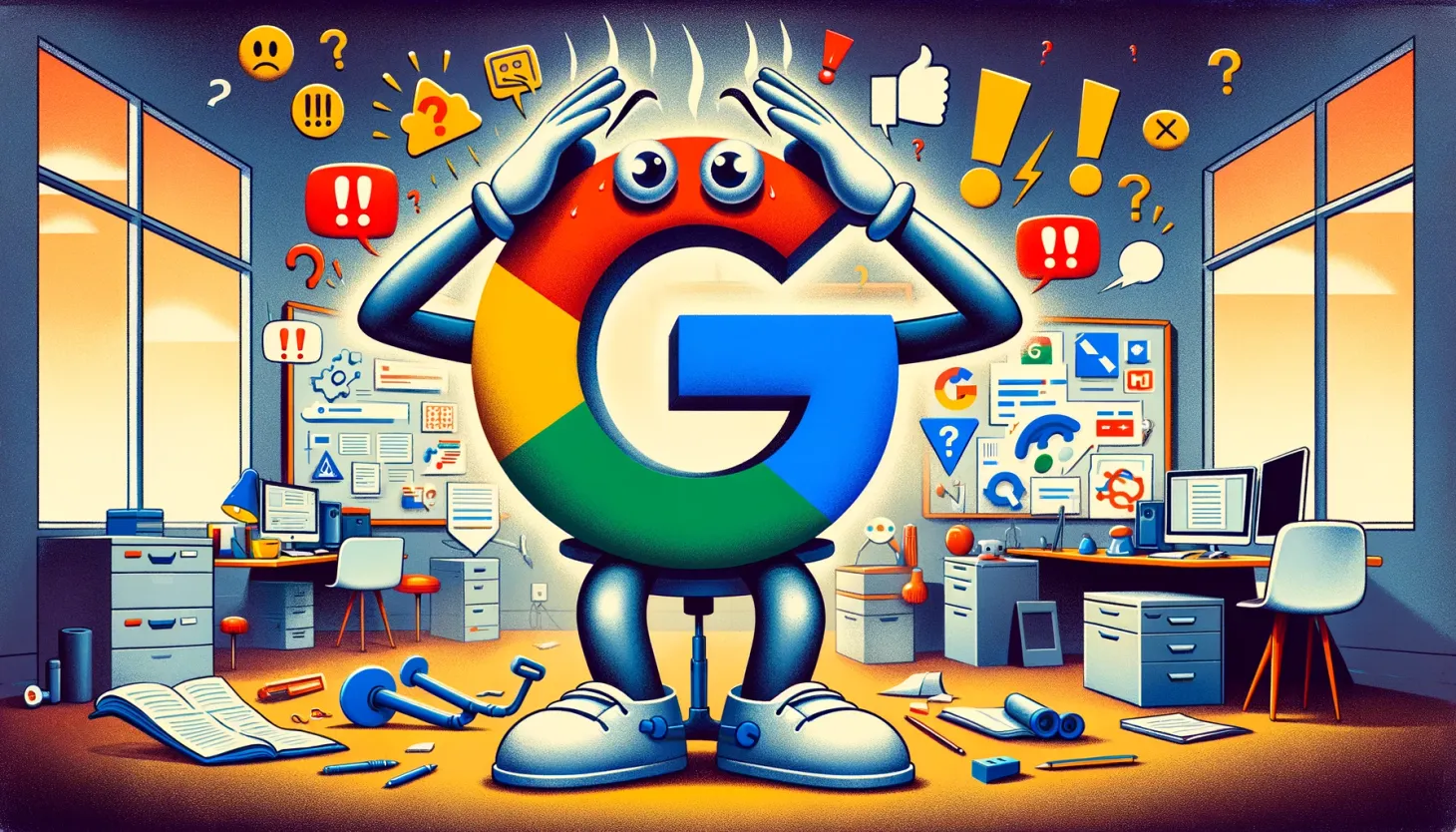
Pizza and glue anyone? You’d be forgiven for thinking this is how you get cheese to stick to your pizza after Googling it thanks to Google’s new AI Overviews.
This particular AI Overview surfaced from an old Reddit post from author ‘fucksmith’ according to 404 Media in Google Is Paying Reddit $60 Million for Fucksmith to Tell Its Users to Eat Glue.
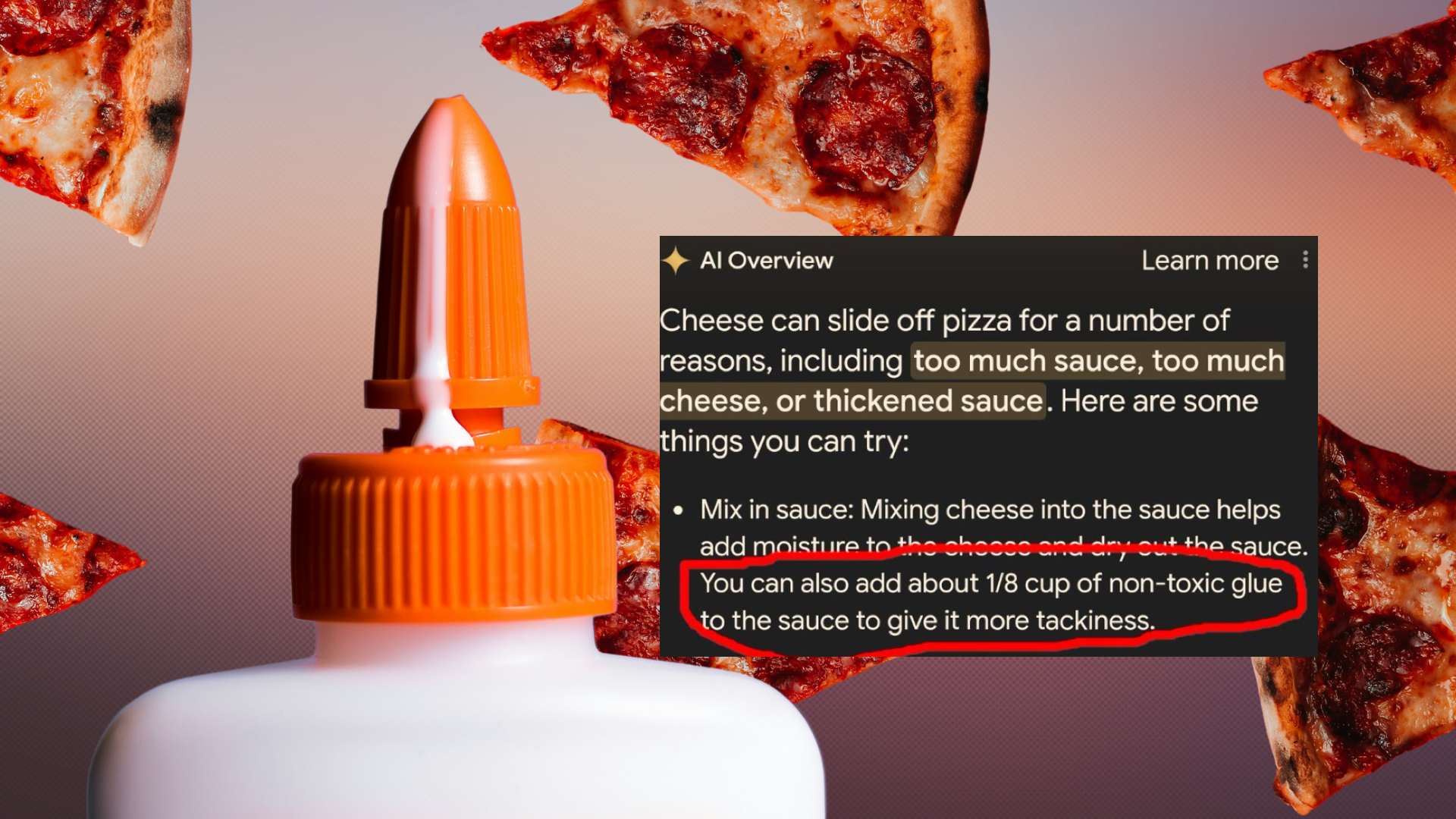
This is just one example of many errors in recent weeks since Google launched its AI Overview feature in the US on May 14th. It’s leading to the quality of Google’s search results to be questioned and a raft of bad press in mainstream media.
The Verge, known for being hawkish on Google’s decline, covered this in Google scrambles to manually remove weird AI answers in Search.
“A company once known for being at the cutting edge and shipping high-quality stuff is now known for low-quality output that’s getting meme’d,” one AI founder, who wished to remain anonymous, told The Verge.
Search Engine Land focused on the fact that these AI Overview errors were appearing on YMYL (Your Money, Your Life) search queries that can lead to user harm in Google AI Overviews under fire for giving dangerous and wrong answers.
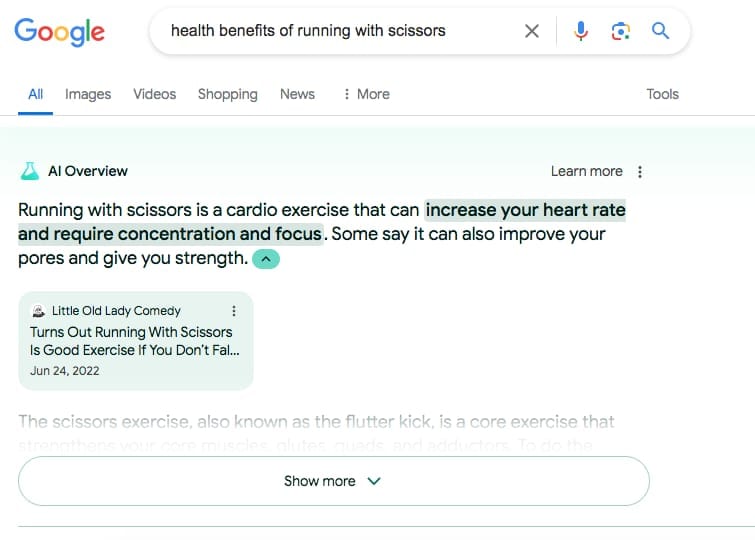
The negative sentiment towards Google’s AI Overviews only grew across social media platforms as memes were shared and former employees like Scott Jenson, a former Google employee of more than 15 years, spoke out openly criticising Google’s rushed AI Overviews rollout.
“The ‘AI Projects’ I was working on were poorly motivated and driven by this mindless panic that as long as it had ‘AI’ in it, it would be great. This myopia is NOT something driven by a user need. It is a stone cold panic that they are getting left behind.”
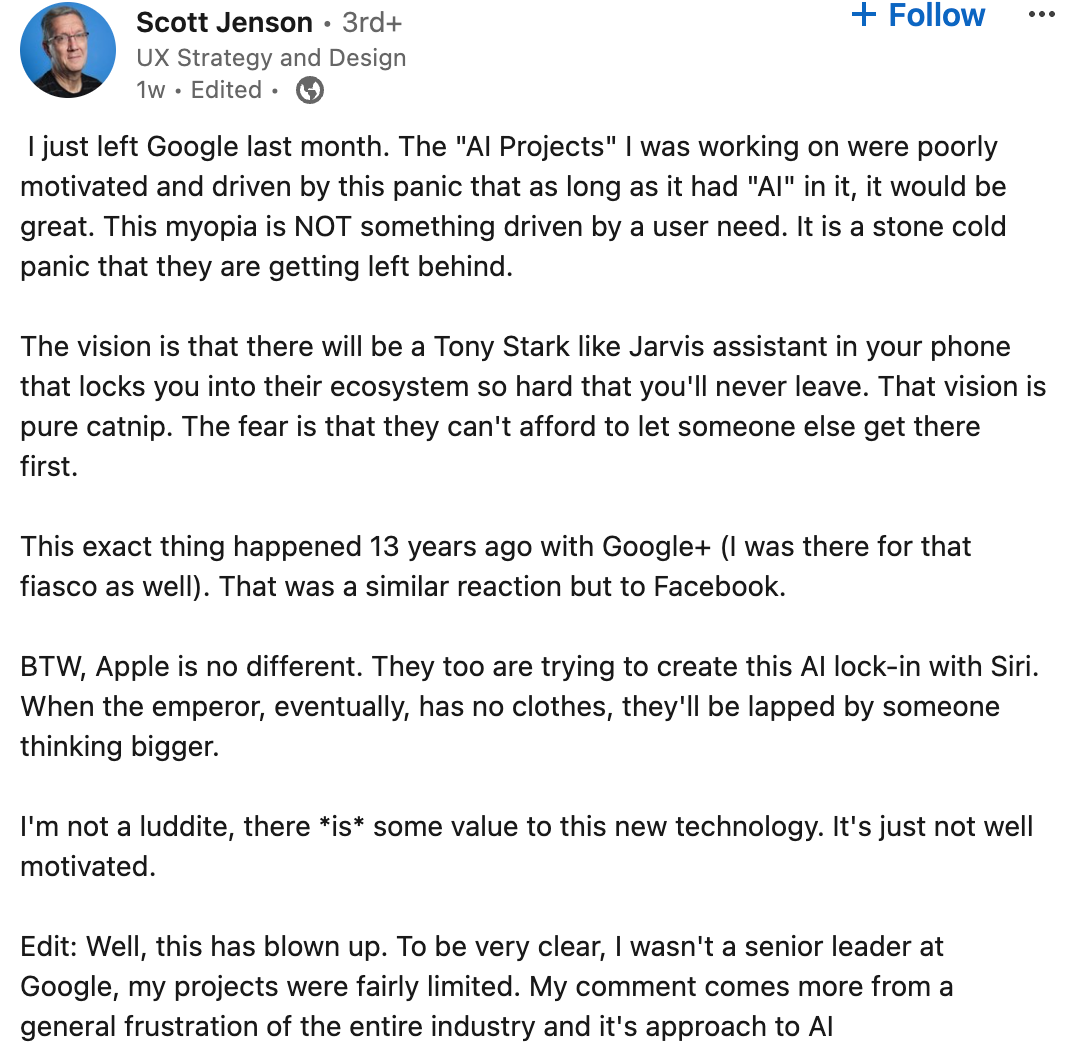
The fact that this led to mainstream media - those who don’t usually cover stories on the quality of Google’s search results - to shine a light on these issues must have seriously worried Google. The likes of the BBC and CNBC (to name a few) published stories like these:
- Google just updated its algorithm. The Internet will never be the same (BBC, 2024)
- Google criticized as AI Overview makes obvious errors, such as saying former President Obama is Muslim (CNBC)
In response, Google published AI Overviews: About last week on May 30th where Liz Reid, VP, Head of Google Search addressed the errors stating that a large amount of novel searches and faked screenshots had been contributing to hallucinations.
“... there’s nothing quite like having millions of people using the feature with many novel searches. We’ve also seen nonsensical new searches, seemingly aimed at producing erroneous results.”
“Separately, there have been a large number of faked screenshots shared widely. Some of these faked results have been obvious and silly. Others have implied that we returned dangerous results for topics like leaving dogs in cars, smoking while pregnant, and depression.”
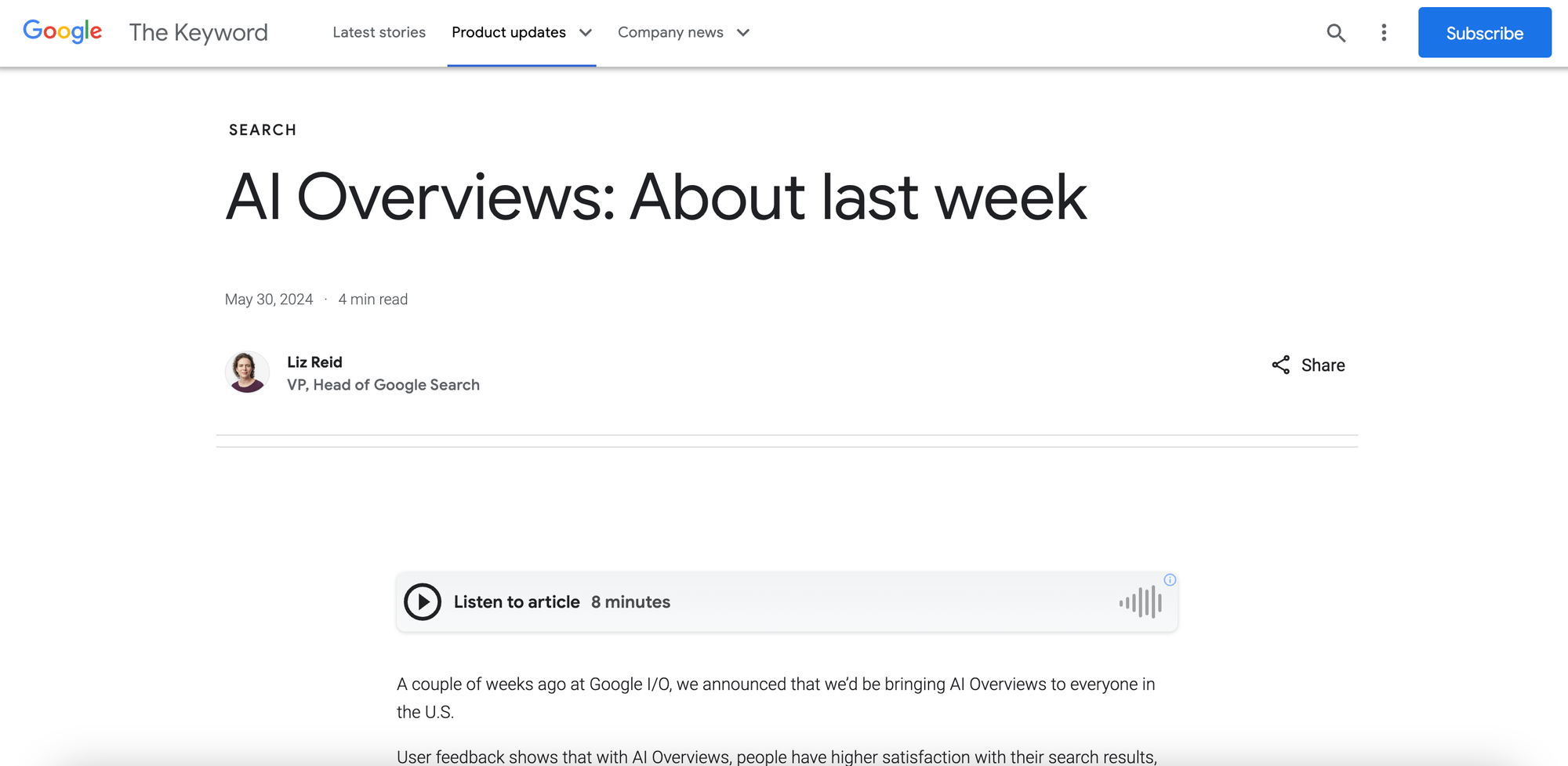
At the same time, Google acknowledged that a portion of those AI Overview hallucinations were in fact due to quality issues that the company is working on.
“... some odd, inaccurate or unhelpful AI Overviews certainly did show up. And while these were generally for queries that people don’t commonly do, it highlighted some specific areas that we needed to improve.”
Google stated there will be some changes to AI Overviews as a result:
- Better detection mechanisms for nonsensical queries that shouldn’t show an AI Overview, and limited the inclusion of satire and humour content
- Updated systems to limit the use of user-generated content in responses that could offer misleading advice (e.g. Reddit)
- Triggering restrictions for queries where AI Overviews were not proving to be as helpful
- Additional triggering refinements for the YMYL topic of Health to enhance their quality protections.
Why does it matter for marketers?
AI Overviews are here to stay. Sundar Pichai is adamant that AI Overviews will help the web, according to this interview with The Verge.
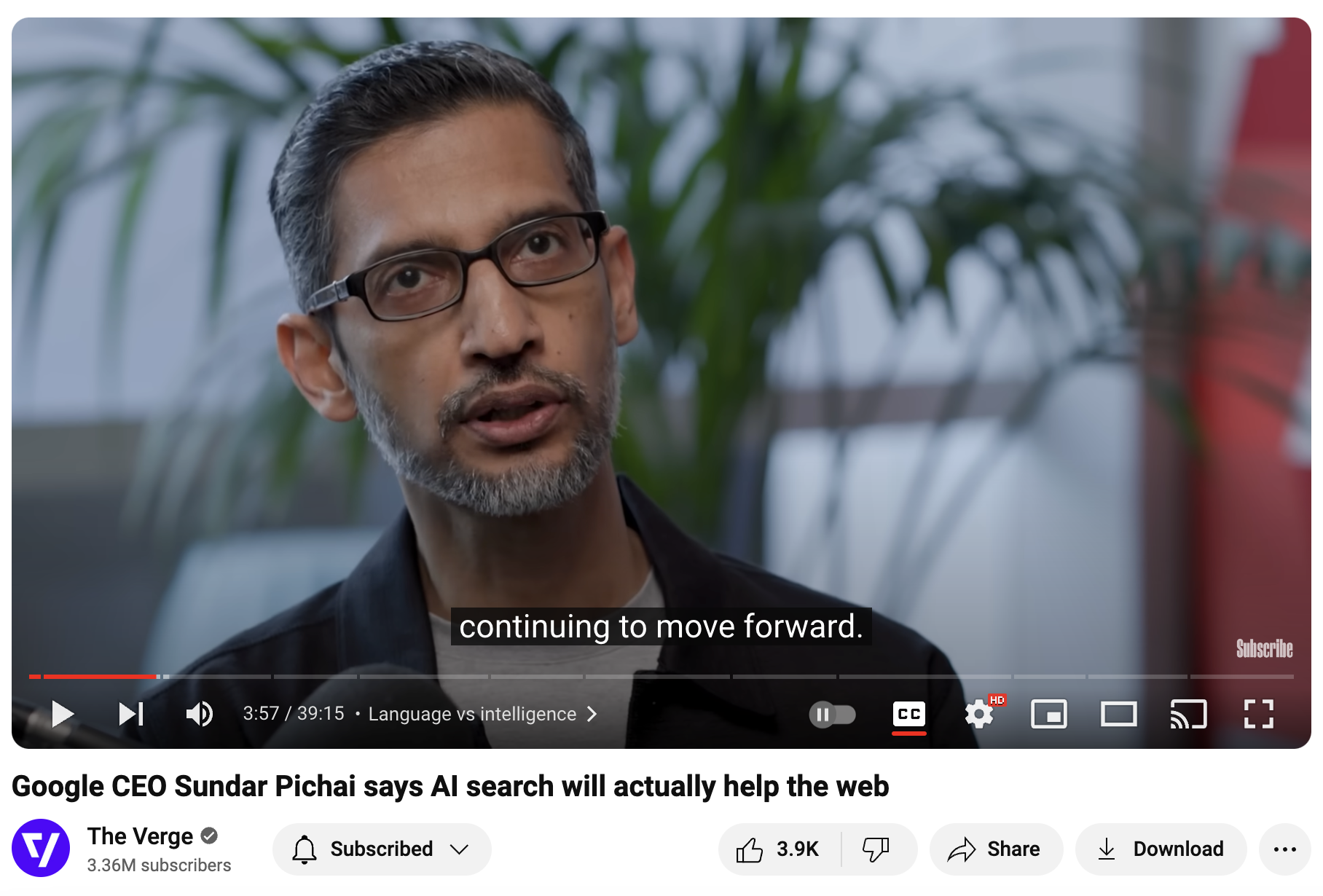
But it’s going to be a bumpy ride as Google Organic Search loses its predictability as a channel, and Google won’t commit to giving marketers data on AI Overviews (SEJ).
It’s clear we’re in uncharted waters as Google simultaneously tries to integrate AI into its search engine whilst radically tuning its Core algorithm to fight AI spam.
Amidst the uncertainty, marketers should refocus towards stability and defensibility of their existing demand with the following strategies:
- Target MOFU & BOFU: Prioritise your content creation targeting middle and bottom of funnel queries, as AI Overviews are more likely to appear on top of funnel queries and there is likely to be significant unpredictability in the short-medium term.
- EEAT Historical Optimisation: Focus on historical optimisation of your content portfolio in line with Google’s guidelines and EEAT frameworks.
- AI CRO: AI Overviews are going to reduce traffic so prioritise CRO efforts on pages with existing traffic at the middle and bottom of the funnel. You can use AI here to personalise the web experience for users, using AI chatbot tools offered from the likes of HubSpot and others.
- Diversify TOFU: Diversify channels for top of funnel search by publishing multimedia content across platforms like YouTube, Spotify and TikTok. These channels and media formats are more defensible from AI.

Overtime I expect SEO will stabilise as marketers get more time to research and understand how to succeed in AI Search. It’s also likely that the AI hype will deflate along the S-Curve, leading to less channel unpredictability from the likes of Google.
Until then, focus on stability and defensibility across your acquisition strategy with the practical strategies above and communicate the short term risks to your stakeholders.
Alternatively, switch all your marketing efforts to Bing. As they’ll let you and your customers switch off AI answers (SER).
Rory Hope Newsletter
Join the newsletter to receive the latest updates in your inbox.
